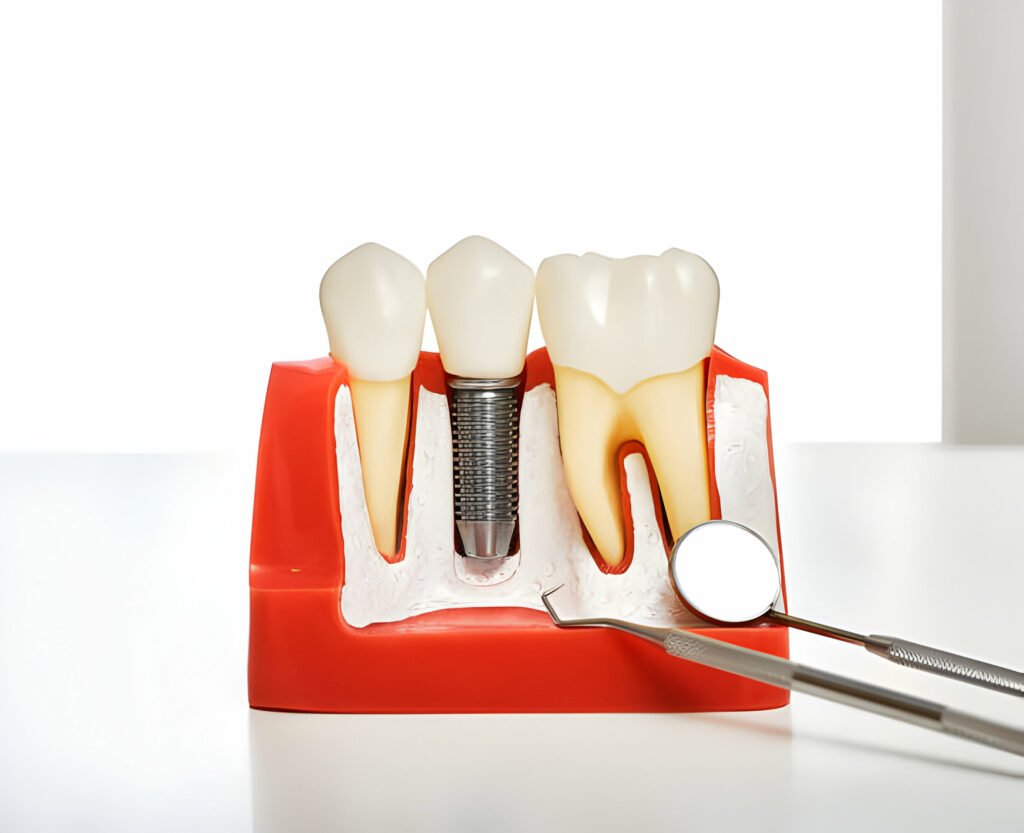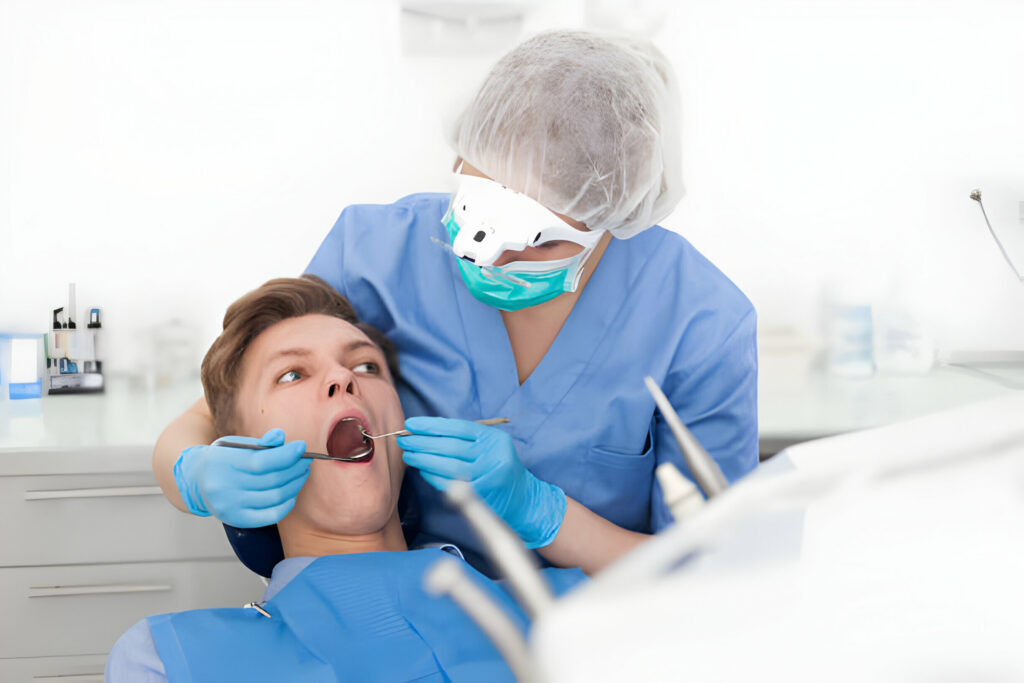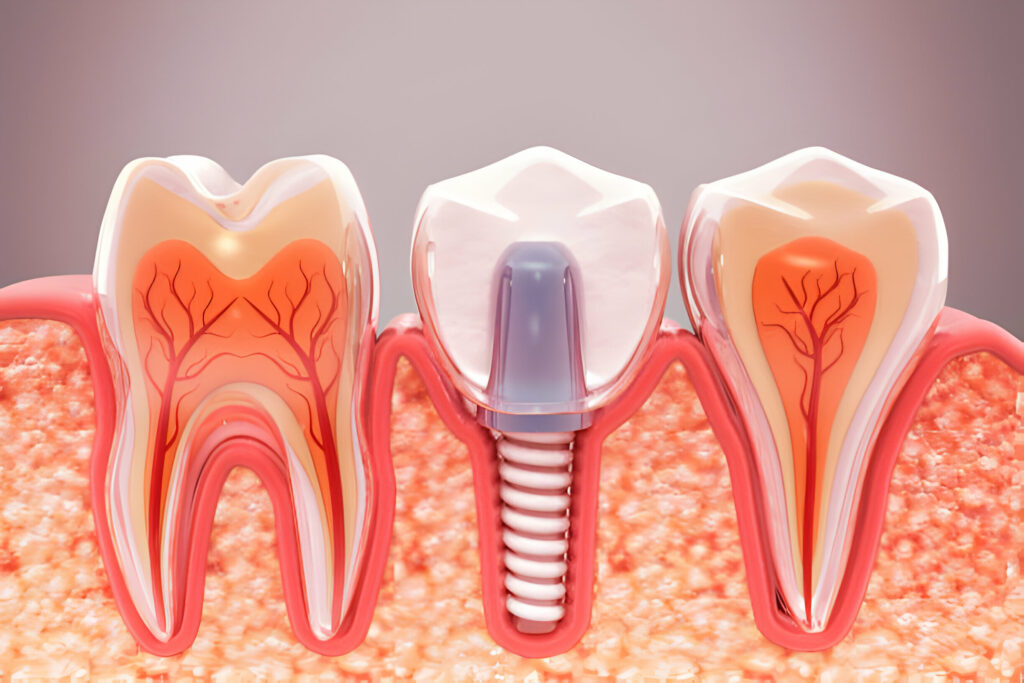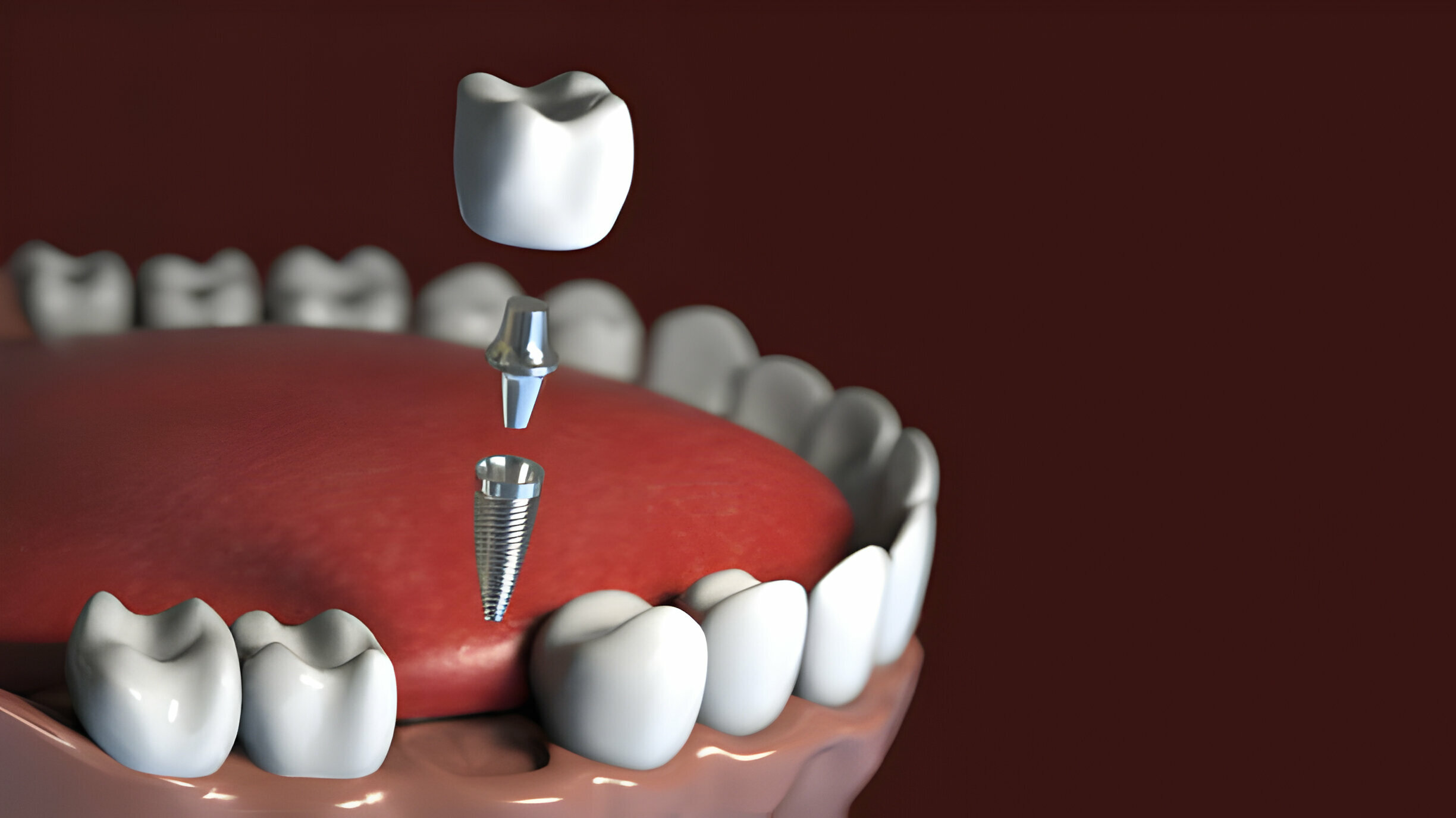Summary:
Have you recently undergone dental implant surgery?
Congratulations, you’re among the 3 million people to replace their teeth for a better oral future.

Dental implant surgery is a significant procedure that will take some time to heal. To avoid any post-op complications, it’s best to follow the instructions provided by your Hutchinson, KS, dentists after your treatment.
Besides, once you have the implants, you might have numerous questions like:
- How long will it take to recover?
- What can I eat?
- Will implants restore my oral functionalities?
Knowing what to expect after the surgery is essential for your speedy recovery. Therefore, this blog throws light on the after-care of implants with numerous topics. Let’s learn more about them in the following sections.
How Long Does it Take to Recover from A Dental Implant Surgery?
The duration needed for dental implant healing varies based on factors like overall health, bone quality, and the intricacy of the procedure. Typically, the integration of the implant with the jawbone can take several weeks to a few months.
Dentists tailor the healing timeline and offer specific care guidance to promote successful implant placement and optimal recovery.
What Can You Expect Immediately After Your Dental Implant Surgery?
Immediately after the surgery, typically within the first 24 to 48 hours, you should prioritize rest. Following that, you should abide by the guidelines provided by your dentist to facilitate a smooth recovery.
You may experience symptoms like swelling, bruising, and minor bleeding during the healing procedure. Don’t panic if you encounter these. Such instances can be easily managed by applying gentle pressure on the affected area using ice packs.
Here are a few tips for your initial recovery phase:
- For the first few days, avoid hard-to-bite food. Consume soft food like smoothies, fruit purees, and yogurt to prevent putting pressure on your new implant.
- Don’t smoke or drink alcohol, as they can hinder your recovery process and affect your dental implants.
- Keep your head elevated while resting to help lymphatic drainage. It will also help reduce excessive swelling.
What Entails the Second Phase of Recovery?
After the first week of the implant procedure, prioritize meticulous oral hygiene. This will play a crucial role in the healing and integration of the implant.
Adhere strictly to a personalized oral care routine during this critical phase. Stick to basic thumb rules like gently brushing and flossing around the surgical site to promote optimal healing.

Besides, focus on providing delicate care to the surgical area. This will help safeguard against any potential disruption to the healing process.
Here’s what you can do to speed up your recovery process:
- Continue eating soft food and slowly include nutritious food that is a little hard. For example, you can start with steamed fish or scrambled eggs.
- Rinse your mouth gently with salt water to accelerate healing and prevent bacteria or infection.
- Avoid brushing directly and rigorously on the implant site. Instead, brush the area gently to avoid pain and bleeding.
Third Stage Of Dental Implant Recovery – Explained!
The third stage of dental implant recovery is also known as osseointegration. During this phase, the dental implant in Hutchinson undergoes a vital process, which integrates with the jawbone, forming a stable foundation for the new tooth.
This integration is pivotal for the implant’s longevity and typically lasts three to six months. Here are some tips to navigate through Osseointegration:
- Dietary Caution
It’s advisable to be cautious with your diet during this period. Avoid consuming hard foods like cookies, raw vegetables, or popcorn directly on the implant site. Opt for softer foods that exert less pressure on the implant area, facilitating a smoother integration process.
- Bruxism Protection
Individuals who grind their teeth, particularly during sleep, should consider using a mouthguard. Bruxism can exert excessive pressure on dental implants, potentially hampering osseointegration. A mouthguard helps cushion the impact and protects the implants from damage.
- Regular Check-ups
Attending scheduled follow-up appointments with our dentist is crucial for monitoring the progress of osseointegration. Your dentist will assess the integration process, ensuring everything is proceeding as expected.
Remember, prompt identification and management can optimize the success of your dental implant procedure.
Final Stage And Dental Restoration
Once the osseointegration stage is complete, you will return to our clinic to restore your teeth. Hutchinson Orthodontist will provide you with two options: crowns and bridges to pair with your dental implant and revive your oral functions.
Here’s what you can expect during the restoration phase:
Assessment
Our dentist will conduct a comprehensive assessment of your implant site, which may include impressions, X-rays, or digital scans. This ensures precise measurements and alignment for the restoration process.
Abutment Placement
The next step involves placing abutments. These small connectors attach to the implant and anchor the final prosthetic tooth or teeth.
Customization
Working closely with dental technicians, our dentist will customize a prosthetic tooth or teeth to match your natural teeth’s shape, color, and size. This end-to-end customization ensures your appliance blends seamlessly with your smile.

Placement
Once your custom restoration is ready, it will be securely attached to the abutments. Our dentist will ensure proper fit and occlusion for optimal function and aesthetics.
Final Adjustments
Our dentist will make any necessary adjustments to ensure comfort and functionality after the restoration is placed. This may include refining the bite or shape of the restoration.
Aftercare Tips To Ensure Long-Term Success
Teeth restoration is crucial to restore your oral functions and smile aesthetics and support your teeth’s structural integrity.
However, you must follow some essential guidelines to maintain the effectiveness and success of your dental implants and restorations.
These tips include:
- Maintain Excellent Oral Hygiene
Brush your teeth at least twice daily and floss gently to keep your mouth clean and free from plaque buildup. Use a soft-bristled toothbrush and non-abrasive toothpaste to avoid irritation around the implant area.
- Handle The Restoration With Care
Treat your implant and restoration with care. Avoid exerting excessive pressure or force when cleaning around the implant site to prevent discomfort or injury.
- Manage Your Pain With Medications
If you experience discomfort or pain after the procedure, follow the recommended dosage of over-the-counter pain medication as your dentist advises. Avoid aspirin, as it may increase the risk of bleeding.
- Protect Your Investment
Avoid activities that could jeopardize the integrity of your implant, such as chewing on hard objects or using your teeth to open packages. Take precautions to safeguard your investment in your oral health.
- Report Any Issues To Dentist
If you notice any unusual symptoms, such as persistent pain, swelling, bleeding, or signs of infection, promptly contact your dentist. Early intervention can prevent complications and ensure the success of your implant.
Takeaway
- Recovering from dental implant surgery varies based on health and bone quality.
- After surgery, rest and following dentist-provided guidelines are essential. Ice packs and gentle pressure can manage symptoms like swelling and bleeding.
- Focus on oral hygiene and avoid hard-to-chew foods during the first week.
- Abstinence from smoking and alcohol is recommended for smoother recovery.
- After osseointegration, dental restoration options like crowns or bridges are considered.
- Experience the magic of dental implants with our experts at Grant D. Ringler, DDS. Visit us today!

